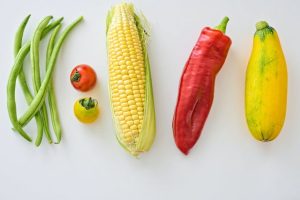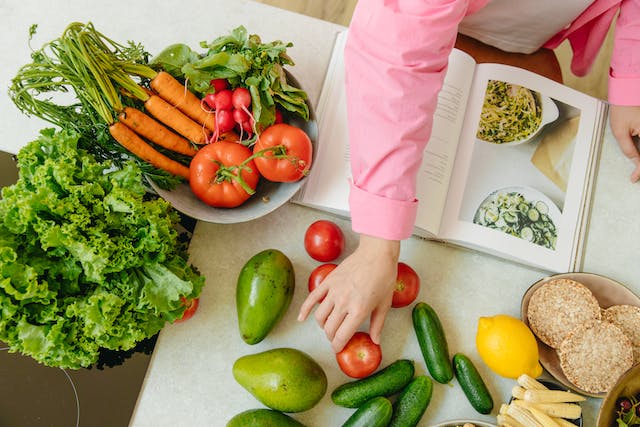Introduction:
In the realm of nutrition, there is a quiet revolution happening, a shift towards a more plant-based diet, and at the forefront of this movement is the humble legume. Legumes, often referred to as the world’s healthiest foods, are gaining recognition for their exceptional nutritional value and versatility. For those who are not only interested in a healthy lifestyle but also seeking advanced techniques and in-depth insights, this article is your gateway into the world of legumes, led by an esteemed nutrition expert, Dr. John McDougall. Legumes, which include beans, lentils, chickpeas, and peas, have garnered attention due to their exceptional nutrient profile. As lifestyle enthusiasts, you’re likely aware that these plant-based powerhouses are rich in protein, fiber, and a range of essential vitamins and minerals.

Nutrient Content
The nutrient content of legumes is nothing short of impressive. They are a great source of plant-based protein, making them an excellent choice for those who follow vegetarian or vegan diets. In addition to protein, legumes are packed with fiber, vitamins, and minerals. For instance, a one-cup serving of cooked lentils provides approximately 18 grams of protein, making it a substantial source of this essential nutrient. This is crucial for lifestyle enthusiasts who aim to meet their protein needs while staying committed to a plant-based diet.
Carbohydrates
Legumes offer more than just protein and fiber; they’re also low in fat and can be an excellent source of complex carbohydrates. The complex carbs in legumes are digested slowly, providing a steady release of energy, making them a favorable choice for those who engage in regular physical activity or require sustained energy throughout the day. Comparing legumes to other carbohydrate sources like grains and potatoes, you’ll find that legumes often have a lower glycemic index. This means they have a gentler impact on blood sugar levels, which is essential for managing blood sugar for individuals with diabetes or those who prioritize stable energy levels.
Cooking Techniques
Once you understand the nutritional benefits of legumes, the next step is to master the art of cooking them. Cooking legumes can be a bit intimidating for some, but fear not; Dr. McDougall has expert tips to offer. To maximize the benefits of legumes, it’s crucial to cook them properly. Dr. McDougall recommends soaking dried legumes before cooking to reduce their cooking time and enhance their digestibility. For canned legumes, a good rinse can help remove excess sodium. Different legumes may require specific cooking methods. For example, lentils and split peas cook relatively quickly, while larger beans like chickpeas may take more time. Experiment with various cooking techniques, from boiling to pressure cooking, to find what works best for you.
Friendly Carbohydrate
As you explore the world of legumes, you may come across concerns and misconceptions about their impact on digestion. However, Dr. McDougall is here to clear the air and help you understand why legumes can be a gut-friendly carbohydrate. Legumes often get a bad rap for causing gas and bloating. But here’s the truth: while they may initially cause some discomfort in some individuals, this is usually temporary. Over time, as your body adjusts to consuming legumes, these side effects tend to diminish. Furthermore, legumes are excellent for promoting digestive health. Their high fiber content supports regular bowel movements and a healthy gut microbiome, which is essential for overall well-being. Understanding and addressing common misconceptions is essential for lifestyle enthusiasts who want to embrace legumes as a staple in their diet. Dr. McDougall highlights that the benefits of legumes far outweigh any temporary discomfort, and he emphasizes the importance of gradual incorporation into one’s diet.

Sustainable Choice
As lifestyle enthusiasts, you’re likely conscious of the environmental footprint of your food choices. Legumes, with their low water and carbon footprints, are among the most sustainable foods available. Their ability to fix nitrogen in the soil reduces the need for synthetic fertilizers, and they require less water compared to many other crops. Choosing legumes as a primary source of protein and carbohydrates is a step towards reducing your impact on the planet. This aligns with the values of many lifestyle enthusiasts who strive for eco-conscious living. incorporating legumes into your diet not only benefits your health but also contributes to a sustainable future. Consider reducing your meat consumption and replacing it with legumes a few times a week. You’ll not only enjoy the health benefits but also play a part in reducing greenhouse gas emissions and conserving water resources.
Conclusion:
The Bean Revolution is not a passing fad; it’s a nutritional movement that is here to stay. With the guidance of Dr. John McDougall, we’ve explored the profound benefits of legumes and delved into their nutritional power, cooking techniques, and their role in promoting gut health. For lifestyle enthusiasts seeking advanced techniques and in-depth insights, legumes offer a world of possibilities. They are not just a source of nutrition but also a way to make a positive impact on the environment. By incorporating legumes into your diet, you can embrace a sustainable and health-conscious lifestyle.




